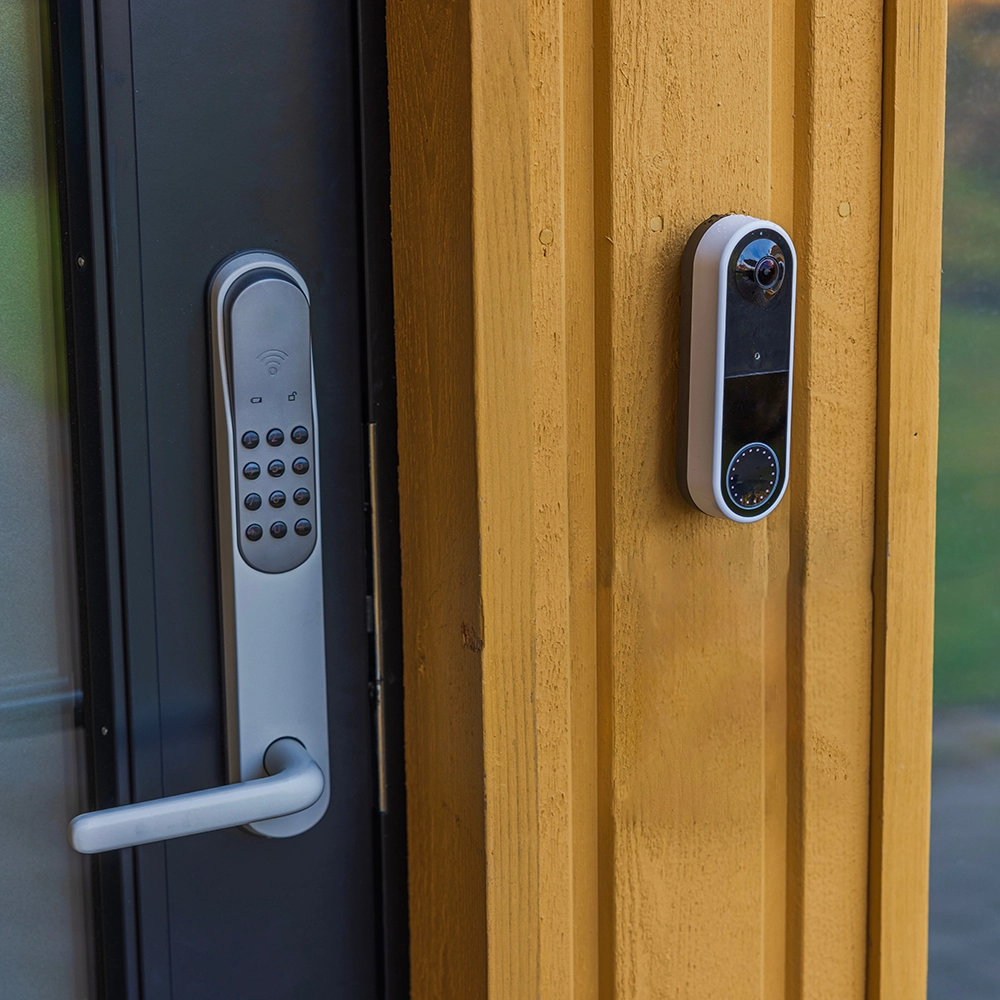Congratulations! You’ve booked your trip and made some of the most critical decisions – found the perfect place to stay, researched things to do, picked out a few restaurants you’re dying to try. Now you’re ready to enjoy a nice, long trip.
Or are you? Before living your best vacation life, you’ll need to tie up a few loose ends of your regular, everyday life.
This pre-trip checklist can help make sure you don’t forget anything, leaving you free to fully enjoy your relaxing getaway.
Checklist for Travel
Apply for or renew your passport.
Getting a passport or renewing one isn’t too difficult, but it does take time. Start this process as early as you can so you aren’t sweating it out right before your trip, wondering if your passport will arrive in time.
If you’ve had your passport for a while, check to see how much longer it’s good for. If it’s only valid for six months or less, you’ll want to apply for a new one, even if you’ll be home long before it expires. Most countries require you to have more than six months remaining on your passport before they’ll let you enter.
Check visa requirements.
Depending on where you’re traveling and for how long, you may need to apply for a visa.
If you’re a U.S. citizen, find out if you need a travel visa via the U.S. Department of State’s Learn About Your Destination site. Enter your destination country, and they’ll tell you what, if any, entry and exit visas are required.
Get vaccinated.
Talk to your doctor or a travel clinic about any necessary vaccinations for your vacation destination. This is something to do a few months in advance in case you need to receive multiple doses or if it takes a few weeks to build up immunity.
Take your vaccination certificate with you on your trip in case it’s needed to enter the country.
Subscribe to STEP alerts.
The U.S. Department of State’s Smart Traveler Enrollment Program (STEP) will send you an alert if your travel destination is experiencing unsafe conditions such as a natural disaster, political unrest, or a strike. This is obviously good information to have before you depart.
You can also provide emergency contact info to STEP, making it easier for family or an embassy to get in touch with you during your trip if your destination becomes unsafe.
Prepare for higher altitudes.
If you’re going to an area of high elevation — 8,000 feet or higher — you may experience altitude sickness. Symptoms of altitude sickness include headaches, nausea, fatigue, and dizziness. In severe cases, it can be life-threatening.
Altitude sickness is one of the most common reasons we have to arrange for emergency medical evacuations, so it’s not something to underestimate. If you’re particularly susceptible, speak to your doctor about preventative medication before leaving on your trip.
Once you’re on the road, you can help stave off this condition by slowly acclimating to the altitude, staying hydrated, and using pain relievers to help offset symptoms.
Call your bank.
Let your bank and credit card companies know when and where you’re going on vacation, so they don’t think your credit card was stolen. This goes for domestic and international trips.
Our bank once turned off our debit card after seeing unexpected charges from Disney World. It wasn’t fraud – just a school trip to Florida – but a simple phone call would have helped us avoid a lot of headaches and broke teenage girl drama.
Talk to your phone provider.
If you’re traveling internationally and haven’t taken your phone to another country, call your phone provider to learn what options are available. You may be able to purchase an international plan or a mobile hotspot.
Another option is using an app like Facebook Messenger or WhatsApp to message anyone important back home. These free options will work wherever Wi-Fi is available and help you avoid roaming charges.
Set auto-responses ... or not.
Your employer may require you to set an out-of-office message on your professional email, but we recommend not doing so for personal email and voicemail accounts. This can be a signal that your home is unoccupied, and not everyone needs that information.
Instead, think about who might need to get in touch with you during your trip and personally tell them you’ll be away. Provide them with alternative contact info if necessary. Just avoid broadcasting your absence to the world.
Pay bills or set up auto-pay.
Simply put, don’t get slammed with late fees and interest because of a missed payment. Pay bills before your trip or, if you haven’t already, enroll in the company’s auto-pay so you don’t have to think about it at all.
Purchase travel insurance.
Soon after you make your first booking, consider purchasing travel insurance. This coverage can reimburse you for prepaid, nonrefundable trip expenses if you have to cancel your trip, experience a trip delay, or decide you need to interrupt your trip and come home early.
Travel insurance can also include medical coverage, which is hugely important if your trip takes you overseas. Most domestic health insurance doesn’t cover you internationally (neither does travel insurance from an airline or a credit card). If you get sick or hurt during your trip, you’ll want the comfort and support of travel medical insurance to help cover expenses so you aren’t stuck paying out of pocket.
Depending on the plan, you can also protect your luggage, get coverage for pre-existing conditions or adventure activities, insure your cruise, and more.
Given the amount of money you can save in the event of an unexpected travel mishap, it’s worth doing the research to find out what type of travel insurance is right for you.
How to Prepare Your Home for Vacation
Clean your house.
Coming home to a clean house after a long trip is the best feeling ever. Change your sheets, clean the bathrooms, pick up clutter — your future self will thank you.
If you can’t commit to a full-house scrub-down, at least clean your fridge and take out the trash so you don’t come back to a house filled with an unpleasant mystery smell.
Freeze a home-cooked meal.
After eating out and trying all manner of indulgent foods on your trip, enjoying a home-cooked meal will feel like a treat. Prep and freeze a meal before you leave so that you have an easy dinner, even if you haven’t made it to the grocery store yet.
If you order groceries, schedule their delivery for the day you’ll be back, so you can quickly restock your pantry and not be tempted to order take out. Just don’t forget to cancel your order if your return gets delayed.
Adjust your thermostat.
This is an easy way to save some money. If you’re not going to be home (and neither are your pets), there’s no need to keep it at the optimal temperature.
In the summer, try 85 degrees. In the winter, keep it at 60 degrees.
Make pet-care arrangements.
Sadly, we can’t always take our furry friends with us when we travel. And sometimes a kennel isn’t always a good option. They can be expensive, and some pets don’t thrive in unfamiliar places.
If you’d rather keep your four-legged (or winged or slithering) friend at home but don’t want to burden friends with checking on them, consider an in-home pet sitter.
There are professionals like TrustedHousesitters that will provide not only care for your pet, but also, because they’re staying at your home, provides some security because your house remains occupied. Take the easy extra step of securing your home with these tips for safely welcoming a pet sitter.
Pause your mail.
If your mail starts to pile up, this could alert potential thieves that you aren’t home. If you’re in the United States, the U.S. Postal Service has a simple online form to schedule a mail hold while you’re on vacation.
Before you leave, don't order anything from Amazon or another online retailer that will arrive while you’re gone. A package sitting on your doorstep for a few days is a major indicator you aren’t home. Alternatively, have it shipped to a friend’s house or your office where they can hold onto it until your return.
Boost your home security.
Reducing the risk of a break-in while you’re on vacation doesn’t have to be complicated. Take advantage of technology.
Smart lighting, especially if you can program it to turn on and off at random intervals, can deter would-be burglars. This includes indoor as well as outdoor lighting, like on your porch or over your garage door.
Security systems, video doorbells, and smart locks can also help you keep an eye on your house, no matter where you are. When the device pairs with an app on your phone, you might be able to see who’s at your door and even talk to them in real time. Having recorded video of your front porch can also help you identify unusual activity.
If you have a smart lock, provide an access code to trusted friends and family, like the neighbor who’s watching your house. This offers a secure way for them to drop off your mail, water your plants, and check on pets.
All the fancy home security tech won’t help if you don’t follow the basics, though. Turn that technology on. Test your doors and windows to make sure everything is locked. A smart lock is great for helping to keep thieves out, but it won’t do much if you accidentally leave the window open.
Tell someone you’ll be out of town.
Whether it's an official neighborhood watch group or simply the friend next door, let someone you trust know that you’ll be out of town. They’ll be able to keep an eye on things and notify authorities of anything suspicious.
Have them put some of their trash on the curb in front of your house on garbage night to make it look like you’ve been home. If snow is expected when you’re traveling during the winter, you might even ask your friend to shovel your driveway. (Be sure to bring them back a nice souvenir.)
Take Care of Last-Minute Tasks
Pack.
This seems like a no-brainer. You might find our tips for packing lighter helpful as you tackle this task, though.
And if nothing else, putting “pack” on your travel checklist can give you a sense of accomplishment. You know it’s something you’ll be able to cross off that list.
Purchase reading material and snacks.
There’s nothing like waiting for a flight and realizing you’re hungry and don’t have anything to keep you occupied. If you put off buying snacks and reading material until you get to the airport, you’ll be stuck with whatever questionable options they have at prices that will make your head spin. Do yourself a favor and stock up beforehand.
Snacks are huge for road trips, too. Avoiding hangry road rage can be as simple as tossing a box of granola bars and pack of sports drinks in the trunk.
Charge electronics.
Before you leave, charge your phone, e-reader, Nintendo Switch, and any other super-important electronic devices. Make sure to bring all your chargers — cords and power bricks — too.
If you’re embarking on a road trip with the family, invest in an extra-long power cord. The people in the backseat will appreciate being able to plug in, even if the only outlet is up by the driver.
Buying an external, portable charger is also a good idea, especially if you’re traveling by plane or headed somewhere you won’t have regular access to charging ports.
Take photos of important items.
Snapping pictures of your IDs, passport, hotel reservations, travel insurance card, and any other important documents is always a good idea.
These pictures should be stored both on your phone and in a cloud-based location (in case your phone is stolen). You can also make physical copies to carry with you. A paper copy will sometimes be accepted in lieu of the original.
If the original documents are lost or stolen, having pictures can make getting replacements much easier.
Remove non-essentials and prohibited items.
If you’re a chronic over-packer, this is a must. Remove unnecessary cards from your wallet — library card, shopping loyalty cards, gym membership card — and any other items you’ve collected in your purse that will only weigh you down while you sightsee.
Pay special attention to items that are prohibited. If you usually carry something like a pocketknife or pepper spray, you can bet TSA will confiscate them at the airport.
They’re also prohibited at some museums and other venues. It’s best to leave them at home or make other arrangements if you absolutely can’t travel without them.
Download essentials and entertainment.
If you’re a music or podcast nut, download what you need before your trip starts. You’ll also want to load your laptop or phone with movies and TV shows if you’re driving or in case the screen on your plane malfunctions. Netflix and Amazon Prime both provide step-by-step instructions to download videos for offline viewing.
Downloading offline maps for your destination is also a great idea. Even though you may be able to find Wi-Fi in your destination city, having maps saved is a reliable way to get the directions you need without draining your battery or data. One of the easiest ways to get maps is through Google Maps.
Find Travel Planning Assistance
A lot goes into trip planning. When you need help navigating all the logistics, turn to the experts. Find more tips at the Seven Corners blog and sign up for The Wayfinder, our monthly newsletter with all the best travel hacks and inspiration to make the most of your time away.
About the Authors
Becky Hart and Kelsey Tharp contributed to this article. Both have written extensively about travel — from family trips to solo adventures, over land and by air — to help you enjoy your own trip of a lifetime.







